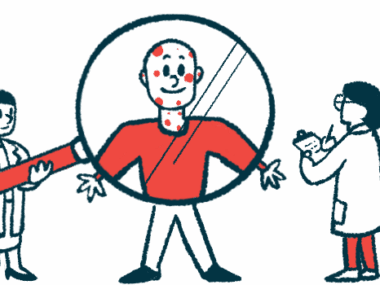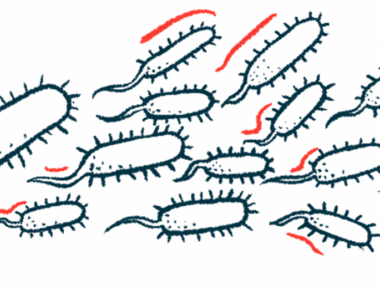Obizur effective as acquired hemophilia A treatment: Study
Results support treatment’s use in Japan, researchers say
Written by |

Obizur (susoctocog alfa) is an effective and safe therapeutic option for the treatment of severe bleeding episodes in people with acquired hemophilia A, a study in Japanese patients showed.
The study “supports the use of [Obizur] as a novel therapy in the clinical management of patients with [acquired hemophilia A] in Japan,” the researchers wrote. Obizur was approved earlier this year in Japan for to treat bleeding episodes in adults with acquired hemophilia A. The therapy has been approved for the same indication in the U.S. since 2014.
The study, “Efficacy and safety of recombinant porcine factor VIII in Japanese patients with acquired hemophilia A,” was published in the International Journal of Hematology.
Unlike other types of hemophilia, acquired hemophilia A is caused when the body produces inhibitors — autoantibodies — that reduce or eliminate the function of factor VIII, a clotting protein. This can lead to defective clot formation and spontaneous bleeding, followed by other symptoms.
In Japan, bypassing agents are standard care, but their use is associated with a risk of thrombosis, the blockage of a blood vessel with a clot. Replacement therapy with recombinant human factor VIII is not a suitable option for patients with acquired hemophilia A because the autoantibodies their bodies produce can inhibit the activity of the treatment. Obizur is viewed as a good replacement option for human factor VIII. Due to its porcine origin, Obizur is different enough to avoid inhibition by autoantibodies.
All patients in trial see results
In a multi-center Phase 2/3 clinical trial (NCT04580407) researchers evaluated the efficacy and safety of porcine-derived factor VIII Obizur in adults with acquired hemophilia A and severe bleeding episodes. The trial was sponsored by Takeda, which owns Baxalta, a company involved in developing Obizur.
Five patients, three men and two women, were enrolled in the trial. They ranged in age from their 60s to their 80s, and their median weight was 51.7 kg. All patients were receiving prednisolone at the same time as Obizur infusions.
With a qualifying bleeding episode, 200 units/kg of Obizur were administered as an intravenous infusion not exceeding 800 units/kg every four hours. Treatment continued until successful control of the bleeding, lack of efficacy, or withdrawal from the study. Researchers evaluated efficacy within 24 hours after treatment initiation, and patients were tracked every 14 days until 90 days after treatment.
All patients showed a positive response to Obizur. At 30 minutes post-infusion, 80% (four out of five patients) responded adequately, and all responded positively at eight, 16, and 24 hours after the initial dose. Only four patients continued the study during the follow-up period, with response to treatment kept at 100% on every follow-up date.
The median total dose per patient was 548.4 units/kg of Obizur, with a median of three infusions per patient.
Factor VIII activity, which indicates clotting ability, increased among patients after each Obizur infusion. Meanwhile, clotting time diminished with every increment of factor VIII activity with Obizur.
Obizur inhibitors were present in three patients, while human factor VIII inhibitors were found in all patients at baseline. All participants had a positive response to the treatment and eventually achieved control of the bleeding episode.
None of the participants developed new inhibitors against Obizur, or experienced an increase in inhibitors against Obizur or human factor VIII during treatment. One patient, treated with prednisolone at a lower-than-recommended dose, showed an increase in Obizur inhibitors and autoantibodies concentrations 42 days after the treatment, which qualified as unrelated to Obizur treatment.
Although 49 mild to moderate adverse events occurred among the five patients, no serious events related to the treatment were reported.
Overall, Obizur “treatment was well tolerated and effectively controlled severe bleeding events in all five patients with [acquired hemophilia A], which is consistent with data from the global study,” the researchers wrote. Results from that Phase 2/3 study (NCT01178294) led to Obizur’s approval in the U.S. in 2014, and in Europe and Canada the following year.
The dose and frequency of Obizur infusions, adjusted to disease variations and combined with monitoring factor VIII activity, provide a personalized approach for acquired hemophilia A, the researchers found, though they noted that the study was limited by its small sample size. “Comparative data from larger studies would be beneficial to support future treatment decisions for patients with [acquired hemophilia A] in Japan,” they wrote.



